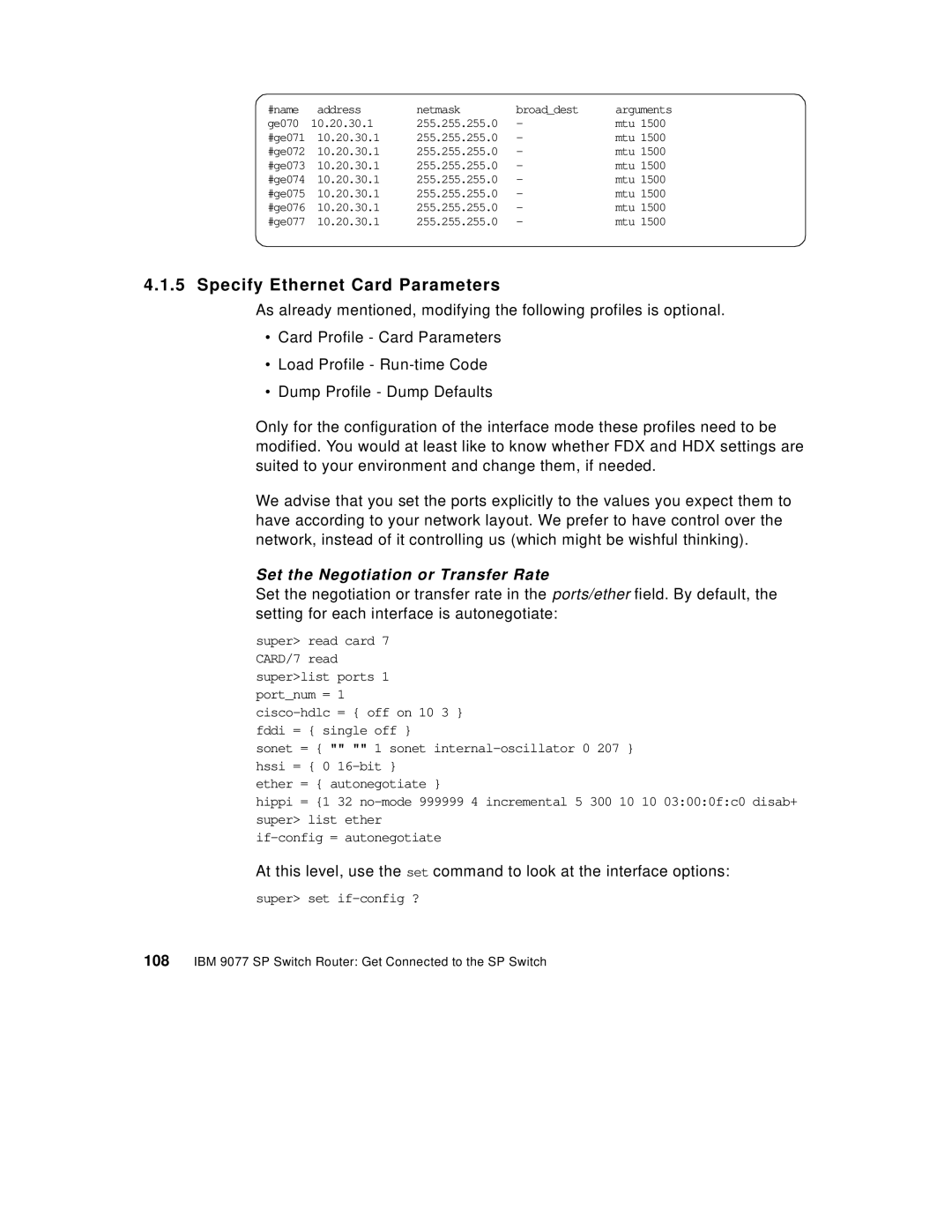
#name | address | netmask | broad_dest | arguments |
ge070 | 10.20.30.1 | 255.255.255.0 | - | mtu 1500 |
#ge071 | 10.20.30.1 | 255.255.255.0 | - | mtu 1500 |
#ge072 | 10.20.30.1 | 255.255.255.0 | - | mtu 1500 |
#ge073 | 10.20.30.1 | 255.255.255.0 | - | mtu 1500 |
#ge074 | 10.20.30.1 | 255.255.255.0 | - | mtu 1500 |
#ge075 | 10.20.30.1 | 255.255.255.0 | - | mtu 1500 |
#ge076 | 10.20.30.1 | 255.255.255.0 | - | mtu 1500 |
#ge077 | 10.20.30.1 | 255.255.255.0 | - | mtu 1500 |
4.1.5 Specify Ethernet Card Parameters
As already mentioned, modifying the following profiles is optional.
•Card Profile - Card Parameters
•Load Profile -
•Dump Profile - Dump Defaults
Only for the configuration of the interface mode these profiles need to be modified. You would at least like to know whether FDX and HDX settings are suited to your environment and change them, if needed.
We advise that you set the ports explicitly to the values you expect them to have according to your network layout. We prefer to have control over the network, instead of it controlling us (which might be wishful thinking).
Set the Negotiation or Transfer Rate
Set the negotiation or transfer rate in the ports/ether field. By default, the setting for each interface is autonegotiate:
super> read card 7 CARD/7 read super>list ports 1 port_num = 1
sonet = { "" "" 1 sonet
ether = { autonegotiate }
hippi = {1 32
At this level, use the set command to look at the interface options:
super> set
